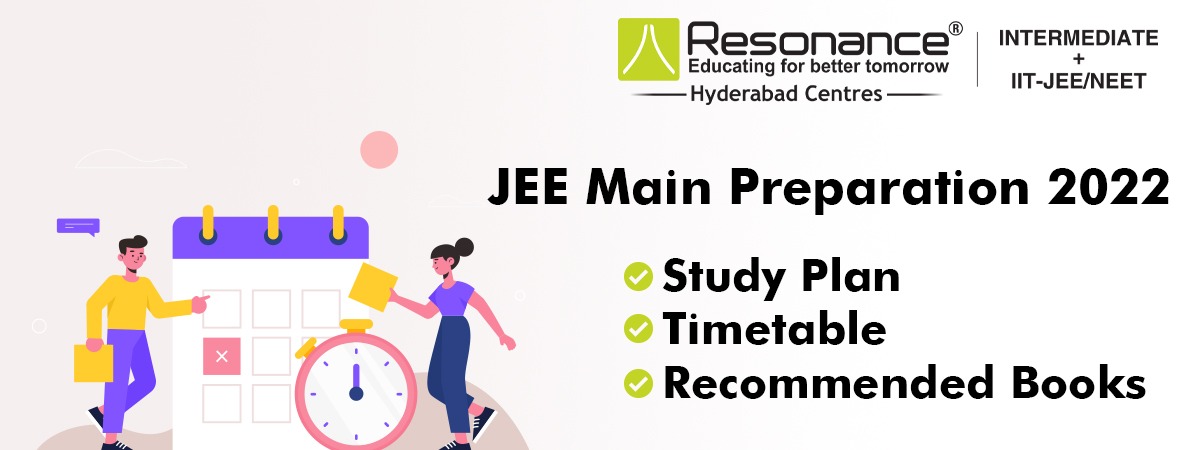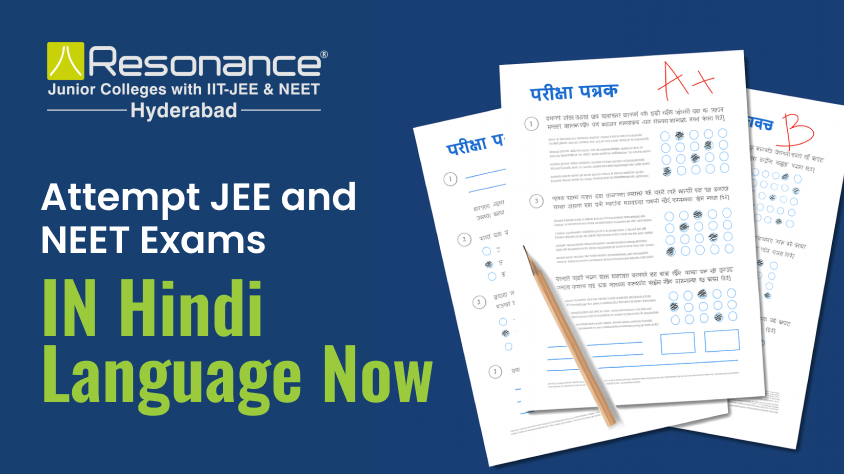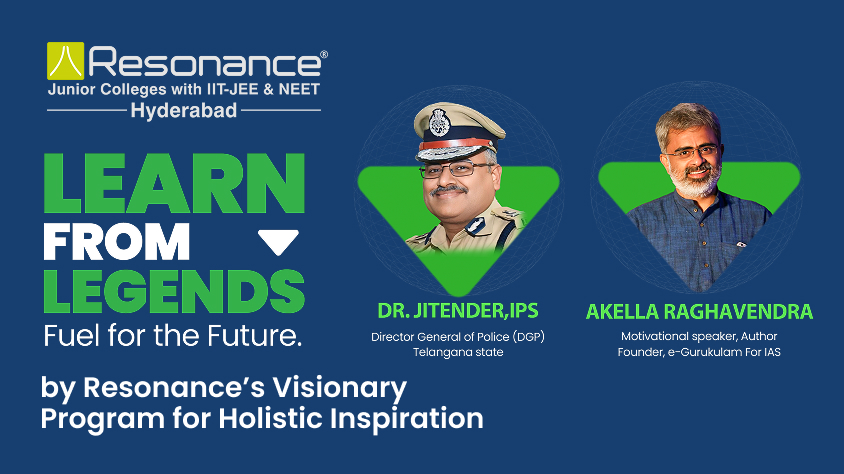- Resonance
- 2010 Views
JEE Main Preparation 2022: Study Plan, Timetable, and Recommended Books

The NTA (National Testing Agency) will administer JEE Main 2022 in two sessions, from April 16 to 21 and May 24 to 29. Students are advised to begin preparing as soon as possible with the limited time. Preparing for an exam such as JEE Main necessitates dedication, determination, and the proper approach. JEE Main has always been undoubtedly one of the most challenging engineering entrance exams, and to pass it, students must develop a study strategy.
The best JEE Main preparation plan for 2022 includes:
- An overall exam strategy.
- The best study material.
- Quality mock tests.
- Previous year's JEE Main papers.
- A study timetable.
This article will answer students' questions about the JEE Main 2022 preparation plan and any other similar concerns they may have. The JEE Main exam is given for three different courses: B.Tech, B.Arch, and B.Plan. Paper 1 is for B.Tech, Paper 2A is for B.Arch, and Paper 2B is for B.Plan. Examine the study plan, recommended books, and timetable for JEE Main 2022.
Study Plan for JEE Main 2022:
Cracking JEE Main is undoubtedly a difficult task requiring complete dedication to the study. However, one thing that can make preparation easier is to study in a systematic and planned manner. Check out the detailed JEE Main 2022 study plan.
Examine the JEE Main Syllabus:
A thorough understanding of the JEE Main syllabus is critical for preparation. Students must be aware of what needs to be studied. JEE Main 2022 Paper 1 syllabus includes Physics, Chemistry, and Mathematics subjects from classes 11 and 12. The JEE Main exam contains questions from the prescribed syllabus. Experts advise against going beyond the exam syllabus because the JEE Main syllabus is very comprehensive and covers almost all aspects of the exam. Once you've covered the entire exam syllabus, concentrate on a few key topics that carry a lot of weight in the JEE Main question paper. Focusing on important topics improves your chances of scoring well.
JEE Main preparation strategy subject-wise:
The JEE Main examination is divided into mathematics, chemistry, and physics. Because all three sections are equally important, aspirants should make sure that they cover the syllabus for all three sections. The following are some section-by-section preparation tips for JEE Mains 2022:
Tips for JEE Main Physics Preparation:
Physics is all about logic and concepts. It is a subject that many JEE Main aspirants fear, and the majority of them give up on physics very quickly. The subject can become more complex, especially when the questions become more conceptual. To overcome this problem, it is critical to understand various topics' difficulty levels and weightage.
Tips for JEE Main Chemistry Preparation:
Chemistry is a subject that many JEE Main aspirants avoid because it requires a lot of memorization. However, most chemistry concepts are pretty intuitive and logical if studied correctly. The three divisions of chemistry are:
-
Organic chemistry
-
Inorganic chemistry
-
Physical chemistry
Chemistry JEE Main questions necessitate a combination of analytical and memorization abilities. For example, questions in physical chemistry are purely analytical, questions in inorganic chemistry require memorization, and questions in organic chemistry frequently form a balance between the two.
Tips for JEE Main Mathematics Preparation:
Because of the vast number of topics covered, mathematics for JEE is said to have an extensive syllabus. In addition, the mathematics syllabus for JEE Main, Advanced, and board exams differs. As a result, aspirants find it extremely difficult to manage the subject. Aspirants must play smart and concentrate more on most scoring topics to overcome this challenge.
Examine Previous Year JEE Main Question Papers:
Previous year JEE Main question papers will aid in determining the exam's difficulty level, topics with weightage, and important chapters. Solving last year's JEE Main question papers will also assist in evaluating preparation level, strong and weak points, and time management.
Complete the JEE Main Mock Test:
It is strongly advised that students take mock tests regularly. Mock tests will aid in the analysis of one's preparation level and the improvement of one's problem-solving habits. It is recommended that students complete online mock tests in a controlled environment for three hours.
Best JEE Main Preparation Books 2022:
Good exam preparation is heavily reliant on the books you study from, so here is a selection of the top books for JEE Main:
Best books for JEE Main physics:
-
NCERT textbooks of classes 11 and 12 by NCERT
-
Concepts of Physics (Volume 1 & 2) by H.C. Verma
-
Mechanics Part 1 & 2 by D.C. Pandey
-
Understanding Physics for JEE Main & JEE Advanced by D.C. Pandey
Best books for JEE Main chemistry:
-
NCERT textbooks of classes 11 and 12 by NCERT
-
Organic Chemistry by Morrison & Boyd/ Solomon and Fryhle
-
Concise Inorganic Chemistry by J.D. Lee
-
Text Books for Inorganic Chemistry for Competitions by O.P. Tondon
Best books for JEE Main Mathematics:
-
NCERT textbooks of classes 11 and 12 by NCERT
-
Differential Calculus for IIT-JEE by Amit Agarwal
-
Problems in Calculus of 1 Variable by I.A. Maron
-
Integral Calculus for IIT-JEE by Amit Agarwal
-
Calculus and Analytical Geometry by Finney and Thomas
Timetable for JEE Main Preparation in 2022:
Studying according to a set schedule can be highly beneficial. It is recommended that students create a timetable that includes time for Physics, Chemistry, and Mathematics. Assign a time slot for revision as well. It is critical to review what you have learned. The best practice would be to check everything you learned that day before going to bed.













